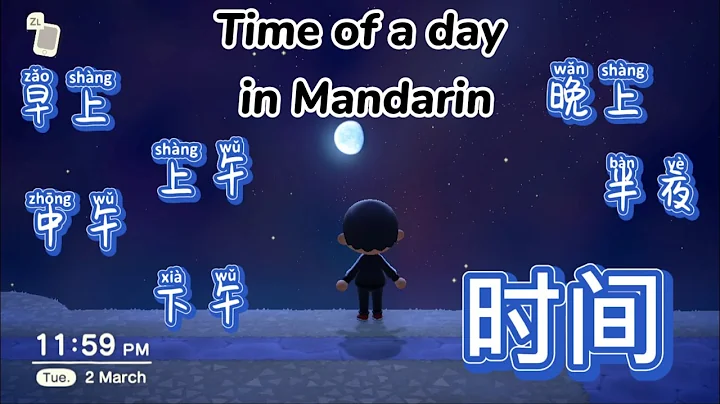Jodatime start of day and end of day
52,268
Solution 1
How about:
private LocalDateTime calcNextSunday(LocalDateTime d) {
return d.withHourOfDay(23).withMinuteOfHour(59).withSecondOfMinute(59).withDayOfWeek(DateTimeConstants.SUNDAY);
}
private LocalDateTime calcPreviousMonday(final LocalDateTime d) {
return d.withHourOfDay(0).withMinuteOfHour(0).withSecondOfMinute(0).withDayOfWeek(DateTimeConstants.MONDAY);
}
Solution 2
You can use the withTime method:
d.withTime(0, 0, 0, 0);
d.withTime(23, 59, 59, 999);
Same as Peter's answer, but shorter.
Solution 3
also a simple way is
d.millisOfDay().withMaximumValue();
Solution 4
With Kotlin you could write an extension function:
fun DateTime.withTimeAtEndOfDay() : DateTime = this.withTime(23,59,59,999)
This would allow you to write:
d.withDayOfWeek(DateTimeConstants.SUNDAY).withTimeAtEndOfDay()
Related videos on Youtube
Author by
nhaarman
Updated on May 14, 2020Comments
-
nhaarman about 4 years
I want to create an interval between the beginning of the week, and the end of the current week.
I have the following code, borrowed from this answer:
private LocalDateTime calcNextSunday(LocalDateTime d) { if (d.getDayOfWeek() > DateTimeConstants.SUNDAY) { d = d.plusWeeks(1); } return d.withDayOfWeek(DateTimeConstants.SUNDAY); } private LocalDateTime calcPreviousMonday(LocalDateTime d) { if (d.getDayOfWeek() < DateTimeConstants.MONDAY) { d = d.minusWeeks(1); } return d.withDayOfWeek(DateTimeConstants.MONDAY); }But now I want the Monday
LocalDateTimeto be at 00:00:00, and the SundayLocalDateTimeat 23:59:59. How would I do this?-
Mikkel R. Lund about 5 yearsIt is always a very bad idea to subtract a "small unit" from the end of time intervals. Time intervals have their start included and their end excluded. Checking if a (date)time is included in the interval you do: start <= time && time < end. Otherwise you end up with a small amount of values (actually in the interval) that suddenly get excluded. Think about the last second in your case. 23:59:59.5 is not in that interval. Using small units just makes the number of excluded values small, but doesn't remove the problem. Using the right comparison does.
-
-
 Hauke Ingmar Schmidt over 12 years
Hauke Ingmar Schmidt over 12 yearssetXxxby convention has no return type in Java so it wouldn't allow chaining. This here reminds of the builder pattern (which originally would not work on an existing object). -
Louis Wasserman over 12 yearsIndeed. This lets you string the calls together, rather than having them all on different lines, and gets you all the benefits of immutable objects.
-
Peter Svensson over 12 yearsI think the "pattern" is called "Fluent interface" martinfowler.com/bliki/FluentInterface.html - gives a lot of benefits in readability and clarity in my opinion.
-
JodaStephen over 12 yearsI wrote up the "with" verb in 2006 - blog.joda.org/2006/05/immutable-pojos-improving-on_6406.html and updated that in 2011 - blog.joda.org/2011/08/common-java-method-names.html . Immutable setters are very different from normal setters in terms of how you use them (you must use the return value).
-
Apollon about 11 yearsBeginning of the day can also be got with d.withTimeAtStartOfDay()
-
Abdull over 10 years
-
 informatik01 about 10 years+1. One note:
informatik01 about 10 years+1. One note:LocalDateTime is immutable, so there are no set methods. Instead, this method returns a new instance with the value of millis of day changed.So you have to assign the result to some variable. -
 informatik01 about 10 yearsOh, I'm sorry. I have just noticed that I addressed my above note to the author of Joda-Time. Quite confusing. Sorry, sir.
informatik01 about 10 yearsOh, I'm sorry. I have just noticed that I addressed my above note to the author of Joda-Time. Quite confusing. Sorry, sir. -
Feuermurmel over 9 yearsKeep in mind that with this method, you're missing one millisecond of each day. I'd suggest using
d.plusDays(1).withTime(0, 0, 0, 0)for the end of that day. -
 yetanothercoder over 9 years@Touko where is
yetanothercoder over 9 years@Touko where iswithTimeAtStartOfDay()? there is no such in LocalDateTime -
ryenus almost 9 yearsbetter to use
plusDays(1).withTime(0,0,0,0)approach as @Feuermurmel pointed out, as it works with leap seconds, as for 2015-06-30T23:59:60 -
le0diaz over 8 yearsThis should be the accepted answer, as compared with the other answers is the best in terms of performance (less objects created as DateTime is inmutable). The method withMaximunValue Documentation even says is the best way to accomplish what the question is asking
-
le0diaz over 8 years@TheRueger response is the best answer. This one is correct but has the the worst performance of current answers as it creates many objects in each withXXX method. d.millisOfDay().withMaximumValue(); is the one to accomplish the best posible way.
-
 deldev almost 8 yearsPay attention the daylightsaving. Better to use
deldev almost 8 yearsPay attention the daylightsaving. Better to used.millisOfDay().withMaximumValue(); -
Yichuan Wang over 7 yearsWhat is the difference with
getMaximumValueOverall? -
Jules about 7 yearsWouldn't these potentially fail with an exception if the local timezone had a daylight savings time change that prevented the specified times existing?







